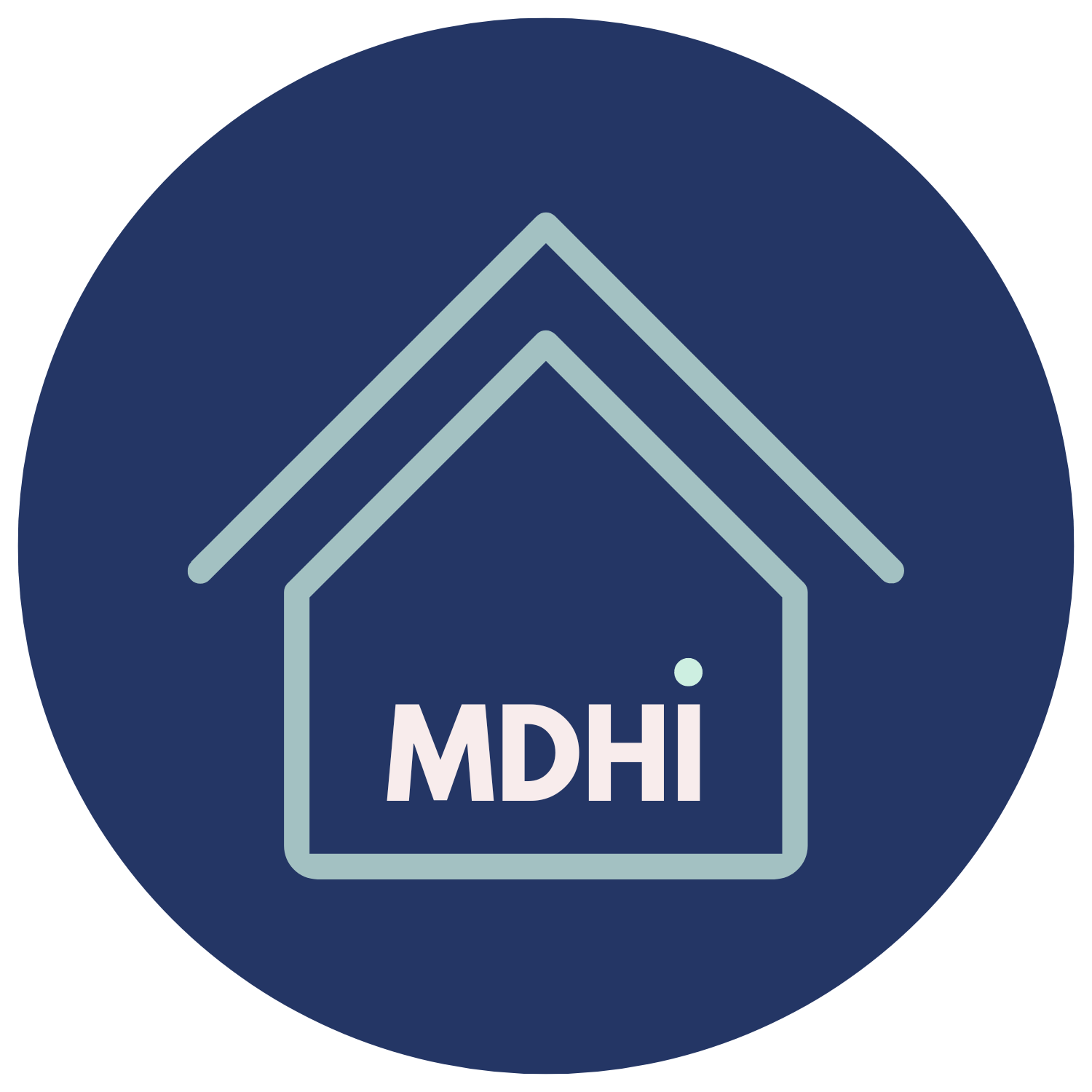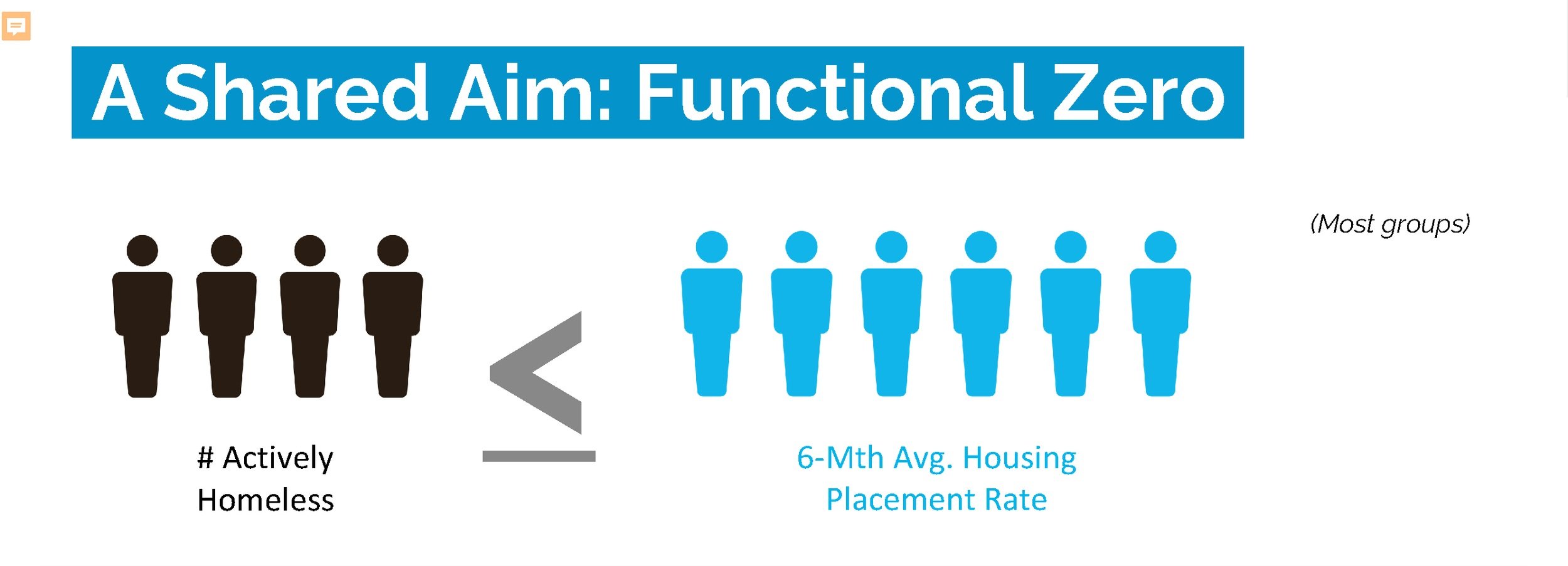Key Takeaways from the 2nd Regional Convening on Homelessness
On April 5, 2022, leaders from across the state gathered to support the ‘Built for Zero’ framework for ending homelessness. This year’s convening focused on the regional and local progress made towards ending veteran homelessness, as well as opportunities for collaboration and lasting change. This event was sponsored by MDHI, Community Solutions, the Metro Mayor’s Caucus, Veterans Affairs, Metro Area County Commissioners, and the CO Division of Housing.
“I called HUD VASH again and they told me to go to the Beacon house. So I went to the Beacon house and I asked them if they could let me stay there for a couple weeks until my apartment was ready. They said ‘yes, that’s what we do.’ It’s kind of a cliché. You know, you guys always say ‘that’s what we do.’ And I believe that now. You guys do an excellent job.”
Built for Zero – The Framework
When we approach homelessness as a solvable issue, we shift from attempting to manage the problem to creating a system that ensures homelessness is a rare, brief, and one-time occurrence. Built for Zero is an operating system that aligns quality, real-time data, local planning, and regional coordination around a shared, measurable aim: ending homelessness. This end is measured by ‘functional zero,’ which happens when a community is housing more people than the number of actively homeless per month.
Metro Denver’s Subregional Approach
“In order for us to be successful we have to absolutely acknowledge that this is a regional issue that no city or county can resolve the enormous challenge of homelessness that is the most complex public policy issue any of us will ever face alone. So I am grateful that we have been able to come together and make the progress under this framework together. Let me simply say thank you to all of our regional partners for leaning in. I’m excited about the opportunities that are in front of us because of our regional collaboration… I’m grateful and I’m absolutely energized by our collaboration and by the progress that’s being made under the Built for Zero framework. ”
MDHI is coordinating the Built for Zero work as the region’s Continuum of Care. However, our regional strategy relies heavily on local planning in order to meet the diverse needs of each community. These subregions include the seven counties (Adams, Arapahoe, Boulder, Broomfield, Denver, Douglas, Jefferson), the Tri-Cities (Englewood, Sheridan, Littleton), and Aurora.
Each subregion is working on the following steps to achieve functional zero:
Complete the BFZ Scorecard
Create a Local Structure (with Veteran Case Conferencing)
Finalize the Veteran By-Name List
Assure Quality Data
House More Vets than on the By-Name List = Functional Zero
Move onto Another Subpopulation
This approach is working! In fact, while all other types of homelessness have increased due to the economic impact of COVID-19, Veteran homelessness has decreased by over 15% since the beginning of 2021. This is encouraging news. Our region is at a point where we know Veterans experiencing homelessness by name and are working to meet their individual housing and stability needs. Some communities, sparked by this momentum, have already begun applying this framework to other subpopulations, such as chronically homeless individuals, families, and youth.
Proposed Homelessness Initiatives
Metro Denver’s strategy requires a robust continuum of response to meet the diverse needs of people experiencing homelessness. The State of Colorado is focused on supporting communities in creating this continuum of proven solutions designed to connect people without stable housing to supportive services, behavioral health, medical care, and housing. The Governor’s budget submission requests $200M from the $700M Economic Development and Relief Funds for community investments in homelessness response. These proposals include:
-
Support investments in community-based continuum of services and supports for people at risk of or experiencing homelessness with complex needs (including behavioral health needs), including: Emergency shelters, Transitional housing, Recovery care and related residential programs, Permanent housing with wrap-around services
Grants will be issued for innovative programs that meet the needs of individuals experiencing or at risk of homelessness. Collaborative partnerships with matching funds from local governments, philanthropy, and private partners are expected.
-
Similar to the Fort Lyon and proposed Ridge View supportive community models, a Denver-area supportive residential regional campus that leverages additional resources and integrates a continuum of services and supports to address physical and behavioral health while provided safe space for recovery
-
Ridge View Youth Services Center is a high quality state owned asset
Provides opportunity to expand upon lessons learned at Fort Lyon Supportive Residential Community in Bent County
Goal is to Invest in a supportive community model that integrates a continuum of recovery oriented services and care (e.g. detox/withdrawal supports), transitional housing, vocational rehabilitation, and oral, physical, and behavioral health services
-
Why:
Data to understand the need and whether we are reducing the number of people experiencing homelessness.
Understanding who is experiencing homelessness and what their needs and barriers are is critical to informing strategies and creating an efficient coordination of resources.
Aim:
Increase capacity across the state to locate, identify, and engage anyone living unsheltered
Increase capacity to improve the data collection of that effort as well as data from homeless programs
Together, these efforts will enhance our collective and accurate knowledge of who is experiencing homelessness and be that bridge to connecting the services and housing.
How:
Fund community-based organizations to hire outreach staff who coordinate with existing efforts that engage people living unsheltered. They will ensure an accurate list is created and engage individuals to assess needs to connect to care and housing.
Fund the Continuum of Care entities to increase Homeless Management Information System utilization.
The American Rescue Plan Act of 2021 (ARPA) also created an additional $1.3 billion of funding for Colorado to improve access to affordable housing and supportive services for people that were disproportionately impacted by COVID.
-
Gap financing (5-7.5%)
Maintain existing affordable housing (4.5-6.5%)
Governor’s priority: Green Energy for AH
-
Gap financing (5-7.5%)
Maintain existing affordable housing (4.5-6.5%)
Sustainable rental assistance (4-6%)
Governor’s priority: Strong Communities
Governor’s priority: Green Energy for AH
-
-
-
Behavioral Health Transformational Task Force and Task Force on Economic Recovery Relief Cash Fund may provide $254M
-
In combination with Governor’s priority: Innovative Housing Incentive Program
-
Policy Recommendations
Creating a well-funded, data-driven homeless response system is simply not enough. Our region needs comprehensive legislation to address the lack of accessible affordable housing so we can treat this problem at the source.
The following Bills are being considered by the House and Senate in this legislative session to address homelessness and affordable housing:
HB1304 - State Grants Investments Local Affordable Housing
SB159 - Revolving Loan Fund Invest Affordable Housing
SB146 - Middle Income Access Program Expansion
HB1282 - Innovative Housing Incentive Program
HB1051 - Modify Affordable Housing Tax Credit
SB160 - Loan Program Resident Owned Communities
HB1083 –Colorado Homeless Contribution Tax Credit
The 2022 Pledge for Elected Officials
“Knowing that issues facing our region do not recognize county lines or city lines, it’s important that our work is collaborative to help address housing, transportation, poverty, and economic development. This year the Metro Area County Commissioners have decided to focus our efforts on identifying regional strategies to support our neighbors that are experiencing homelessness.”
We ask our state and local elected officials to sign this pledge and maximize our region’s progress toward ending homelessness.
In metro Denver, we have a shared goal of making homelessness, rare, brief, and non-recurring. We understand that there are many paths to homelessness including high housing prices, stagnant wages, domestic violence, disability, chronic conditions, and mental and behavioral health challenges. We are committed to addressing these core issues in an equitable manner to ensure that homelessness is not a destination, but rather a low point on the path toward a better future. To this end, we pledge to work together and exercise leadership to:
Build on our success from year one of Built for Zero which reduced veteran homelessness by 15% despite rising rates of homelessness nationwide;
Use the shared Homeless Management Information System or “HMIS” database that enables us to better serve our neighbors experiencing homelessness regardless of their location in the region;
Tailor our interventions and methods to reflect peer-reviewed best practices;
Collaborate regionally to maximize our investments in housing, treatment, and other critical resources.



